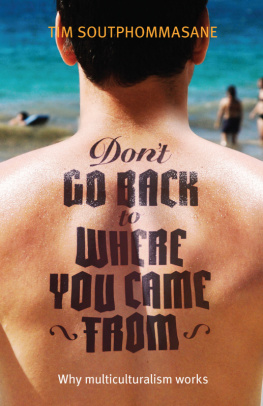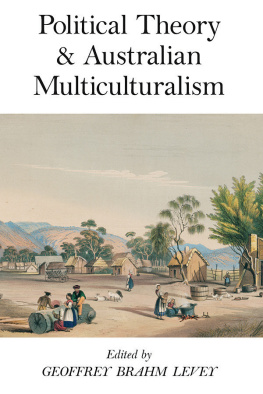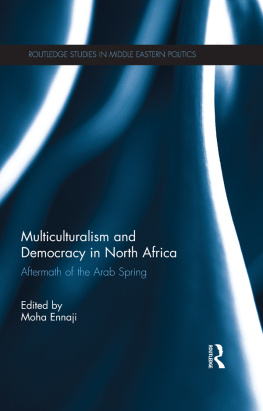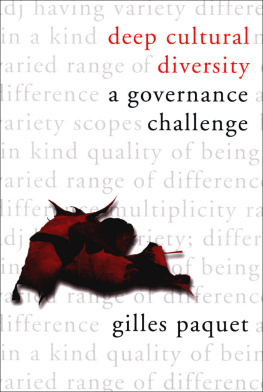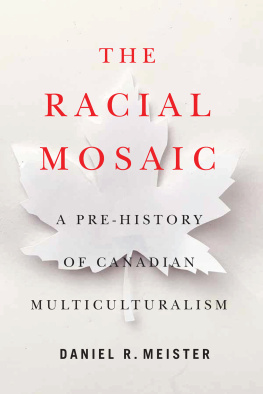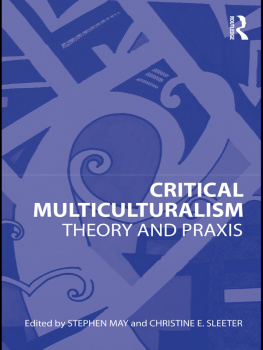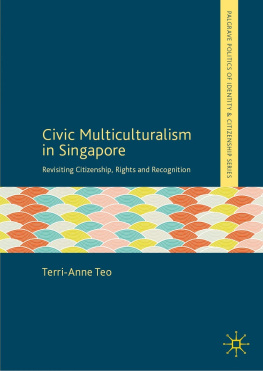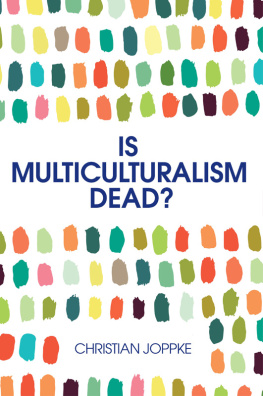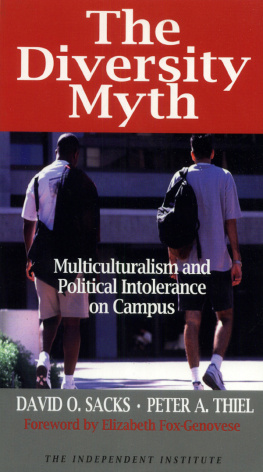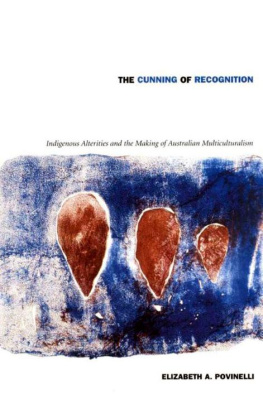Dont Go Back to Where You Came from
T IM S OUTPHOMMASANE is a lecturer at Monash Universitys National Centre for Australian Studies and a research fellow at Per Capita, a public policy think tank. He is also a columnist with The Age in Melbourne, a member of the Australian Multicultural Council, and a director of the National Australia Day Council. A first-generation Australian, Tim completed his doctorate in political philosophy at the University of Oxford. His previous books include Reclaiming Patriotism and The Virtuous Citizen.
Dont
GO BACK
to
WHERE
YOU CAME
FROM
Why multiculturalism works
TIM SOUTPHOMMASANE

For Sarah
A NewSouth book
Published by
NewSouth Publishing
University of New South Wales Press Ltd
University of New South Wales
Sydney NSW 2052
AUSTRALIA
newsouthpublishing.com
Tim Soutphommasane 2012
First published 2012
10 9 8 7 6 5 4 3 2 1
This book is copyright. Apart from any fair dealing for the purpose of private study, research, criticism or review, as permitted under the Copyright Act, no part of this book may be reproduced by any process without written permission. Inquiries should be addressed to the publisher.
National Library of Australia Cataloguing-in-Publication entry
Author: Soutphommasane, Tim.
Title: Dont go back to where you came from: why multiculturalism
works/Tim Soutphommasane.
ISBN: 9781742233369 (pbk)
9781742241203 (epub)
9781742243788 (mobipocket)
9781742246109 (epdf)
Subjects: Multiculturalism Australia.
Cultural pluralism Australia.
Dewey Number: 305.800994
Design Josephine Pajor-Markus
Cover design Xou Creative
Cover images Thinkstock
Printer Griffin Press
This book is printed on paper using fibre supplied from plantation or sustainably managed forests.
Contents
Introduction
Mention multiculturalism and veils, and one naturally thinks of the controversies that have raged over burqas and hijabs. Yet it was through a very different kind of veil that I was introduced to debates about multiculturalism in the late 1990s. At the time, Pauline Hanson was at the peak of her popularity, leading her One Nation Partys crusade against Asian immigration, multiculturalism and political correctness. During lunchtimes at high school I found myself in debates with students and teachers about whether Hanson was racist; whether she was right about the country being swamped by Asians. There were a good number of teenaged Hansonites among my fellow students. Occasionally someone in class would express their admiration for Hanson, or their disdain for gooks and coons. With my interest in politics awakened, I began reading about multiculturalism and came to be introduced to the veil of ignorance.
The idea was conceived by American political philosopher John Rawls. In his classic A Theory of Justice, Rawls famously proposed that we could imagine a hypothetical social contract in a liberal society by placing ourselves behind a veil of ignorance. Imagine we didnt
As imaginary devices, the original position and veil of ignorance aid in clarifying the nature of our concern with multiculturalism. They remind us what is at stake. How we deal with cultural diversity is far from a marginal affair, relevant only to newly arrived minorities. Just how we conduct our disagreements about matters of integration, immigration and nationhood says a lot about the state of our society. Multiculturalism requires us to confront the matter of social justice to reflect upon how we collectively live up to ideals of fairness and equality. Too often we celebrate our diversity without first asking whether a fair go and egalitarianism extend to all Australians, regardless of their cultural backgrounds. Too often we are guilty of complacency. What, for example, might have been the case had the gook-baiting, coonhating Hansonites among my old classmates paused to imagine themselves trapped in the body of an Asian or Aboriginal? What if they had placed themselves in the original position? And what point of view would todays critics of multiculturalism adopt if they werent to know whether they would find themselves to be Muslims once they stepped out of the original position?
The purpose of this book is to lift a different veil of ignorance. In recent years, it has been hard to find multiculturalism discussed in anything but negative terms. The years of the conservative Howard government, and a resurgent Australian nationalism, seemed to quash enthusiasm for cultural diversity. Across Western Europe, successive governments have embraced more muscular, assimilationist policies. For example, in October 2010 German Chancellor Angela Merkel declared that Multiculturalism is dead, amid calls from some German politicians for a halt to immigration from Turkey and the Middle East. Not long after, in early 2011, British Prime Minister David Cameron joined in repudiating a state doctrine of multiculturalism, as did the then French President Nicolas Sarkozy.
Such developments have emboldened many local commentators and politicians to suggest that Australian governments should do the same.
Yet there are signs of multicultural renewal underway in Australia. In 2011, Minister for Immigration and Citizenship Chris Bowen extolled the genius of Australian multiculturalism. Much has since changed.
It is strange that so many are hostile towards multiculturalism. As I will argue, there is every reason to believe there is a good story to be told about it. We have forged a model of cultural diversity that has been a success, by all objective measures. Amid all the talk about multicultural failures across Western liberal democracies, Australia has proven itself to be an exception. The problem is that weve allowed ourselves to forget the distinctive qualities of the Australian experience. Critics of multiculturalism construct straw men and wrongly extrapolate from troubles overseas. Its supporters, meanwhile, rest their case on the ornamental qualities of diversity. Progressive liberals, in particular, embrace the supposed sophistication of cosmopolitan lifestyles. A multicultural Australia has been reduced to the novelty of being able to eat a different ethnic food each day of the week.
This book avoids taking a lifestyle approach to multiculturalism. Cultural diversity isnt only about the range of available cuisines. When we suggest that it is, we can struggle to articulate any deeper significance to culture than food. Such superficiality encourages people to dismiss multicultural policies as mere symbolism or gesture politics. Focusing on lifestyle can mean that we fail to recognise the civic dimensions of diversity. We can lose sight of how diversity demands of us answers not only about culture, but about justice and citizenship.
It is important, moreover, to be unapologetic about One may accept or tolerate diversity without also wishing to endorse it through government policy.
The word multiculturalism can admittedly mean different things to different people. It could be regarded as an example of an essentially contested concept, a word whose meaning is subject to perennial dispute.state demur that recognising cultural differences may come at the expense of economic redistribution. Some progressive liberals, believing in the ultimate value of individual liberty, have a different objection: that valuing cultural diversity in the form of group identities may be destructive of personal choice and autonomy. Whichever way one turns, there is disagreement. Little wonder the word may appear so confusing and unattractive.
Next page
